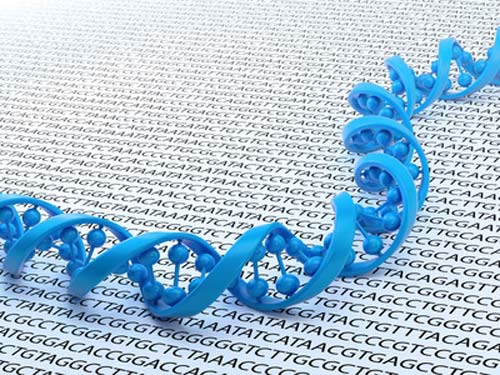
A new study from investigators at 10x Genomics and the Fred Hutchinson Cancer Research Center demonstrated the ability of a newly developed single-cell RNA-sequencing (scRNA-seq) system that can be used to dissect transcriptomic heterogeneity from patients with acute myeloid leukemia (AML). Findings from the new study were published online today at Nature Communications through an article entitled “Massively parallel digital transcriptional profiling of single cells.”
In addition to the new sequencing technique, the investigators developed a computational analysis method that utilized genotype to differentiate donor cells from host cells within bone marrow transplant samples. The researchers were able to combine this method with clustering analysis to compare subpopulation changes in AML cohorts. The research team is optimistic that their new analysis will enable transplant monitoring of the complex interplay between donor and host cells.
“Earlier methods for single-cell RNA-sequencing posed practical challenges for many labs, including our own,” noted senior study investigator Jason Bielas, Ph.D., principal investigator at the Fred Hutchinson Cancer Research Center. “Therefore, we welcomed the opportunity to collaborate with 10x Genomics to help validate and tailor its single-cell RNA-sequencing platform to unlock the potential of single-cell transcriptomics in both biological and clinical research. “The speed, reproducibility and high cell capture efficiency of 10x’s single cell analysis allowed us to accurately profile fragile bone marrow samples isolated from patients with acute myeloid leukemia who underwent multiple rounds of chemotherapy, transplant conditioning, and immunosuppression.”
To demonstrate the technical performance and applications of the newly developed system, the researchers collected transcriptome data from approximately 250,000 single cells across 29 samples. The results showed scalability and robustness of this system for single-cell RNA-sequencing, with comparable sensitivity to existing methods. The system’s rapid cell encapsulation and high cell capture efficiency enabled analysis of precious clinical samples from patients with acute myeloid leukemia. Furthermore, the investigators were able to determine host and donor chimerism at single cell resolution and compared immune cell subpopulation changes in patients before and after transplant.
“We describe a droplet-based system that enables 3′ mRNA counting of tens of thousands of single cells per sample,” the authors wrote. “Cell encapsulation, of up to 8 samples at a time, takes place in ∼6 min, with ∼50% cell capture efficiency. We validated the sensitivity of the system and its ability to detect rare populations using cell lines and synthetic RNAs. We profiled 68k peripheral blood mononuclear cells to demonstrate the system’s ability to characterize significant immune populations. Finally, we used sequence variation in the transcriptome data to determine host and donor chimerism at single-cell resolution from bone marrow mononuclear cells isolated from transplant patients.”
Existing methods for single-cell RNA-sequencing face practical challenges when scaling to tens of thousands or more cells in throughput. This new methodology enables single-cell RNA-sequencing at scale, with high cell capture efficiency and flexible throughput.
Current plate-based approaches require time-consuming fluorescence-activated cell sorting (FACS) into many plates that must be processed separately. Microfluidics-based platforms utilize mechanical trapping of cells and are limited in their throughput and cell capture efficiency. Academic droplet-based techniques enable processing of tens of thousands of cells in a single experiment but are not efficient to implement, or robustly scale. This study demonstrates the new assay—dubbed Chromium Single Cell 3’ Solution—can address both of these shortcomings in a single assay, resulting in a more scalable and robust platform for single-cell RNA-sequencing.











